During the second week of our Academic Staff Awards finalists series, we delve into the accomplishments of Macquarie staff members who are pushing the limits of knowledge to discover innovative approaches and create a significant influence, in both education and research.
Register to attend the awards ceremony on 15 November.
Vice-Chancellor’s Award for Learning and Teaching Innovation
This award recognises the development and implementation of innovations that improve learning, teaching or assessment to enable, motivate, support and inspire students to learn.

The team of: Associate Professor Louise Koelmeyer, Dr Belinda Thompson, Robin Blumfield, Professor Catherine Dean, Robbie Blackwell, Dr Kylie Gwynne, Fiona Tisdall Blake, Dr Morwenna Kirwan, Matthew Robson and Chloe Szilas, Department of Health Sciences, Faculty of Medicine, Health and Human Sciences
When the Australian Lymphoedema Education, Research and Treatment (ALERT) team needed to redesign its nine-day face-to-face intensive program, they also replaced the outsourced, outdated, compulsory pre‑learning with their own cutting-edge version.
The results have been “remarkable”, says director Associate Professor Louise Koelmeyer, with the face-to-face component now requiring just four days to complete.
Students are also better able to retain knowledge because the new suite of online modules, comprising diverse media, content chunking, engaging animations and knowledge checks, not only demands a smaller cognitive load but also better supports student learning.
“Today we offer a blended program that combines online delivery with four days of in-person clinical skills training and assessment, complemented by 35 clinical skills videos featuring real patients,” says Associate Professor Koelmeyer.
In a recent survey, 100 per cent of respondents agreed that the new combination enhanced their clinical experience and was one of the best learning experiences of their career.
“The ALERT program has already been recognised for its innovation and design,” says Associate Professor Koelmeyer. “We take immense pride in our accomplishments and the positive impact we have made in the field of lymphoedema education. Ultimately, our vision is to improve the lives of individuals at risk of or who are living with lymphoedema.”
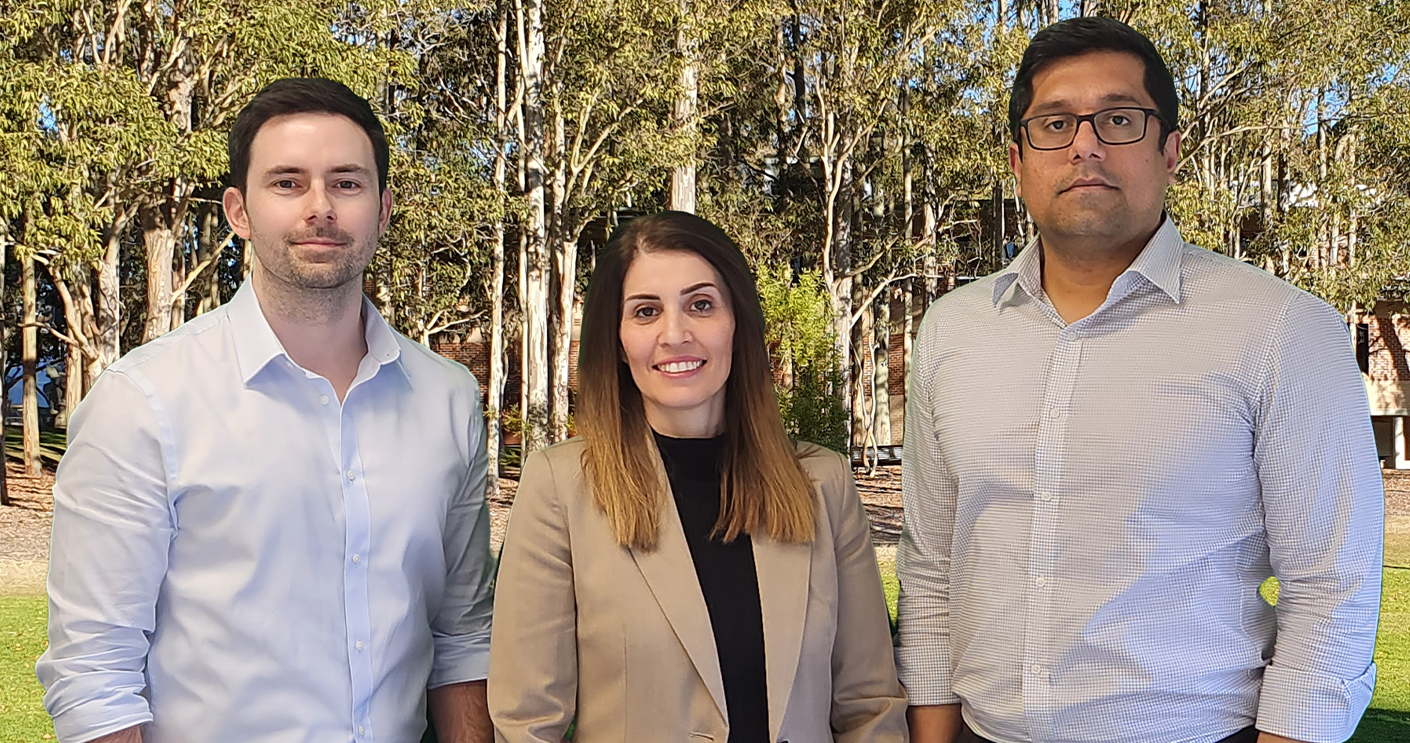
The team of: Dr David Payne, Dr Sara Deilami, and Dr Binesh Puthen Veettil, School of Engineering, Faculty of Science and Engineering
The automated early-warning system developed by Dr David Payne, Dr Sara Deilami and Dr Binesh Puthen Veettil to predict which students are most at risk of failing a unit has the potential to benefit not just the entire University, but the education sector as a whole.
From its first deployment in a single unit in 2021, to three units in 2022, the team has this year successfully expanded its rollout to include core units across mathematics, physics and engineering.
“Traditionally, identifying at-risk students has been very challenging, especially for larger units,” says Dr Deilami. “But our innovative approach offers an efficient, simple and even accurate process to identify these students. This benefits both staff and students as it minimises workload and training, allowing the staff to focus on providing student support.”
Convenor of the largest unit offered at the School of Engineering, Associate Professor Noushin Nasiri agrees: “Since this innovation, we’ve been able to efficiently tackle this problem, and have increased the success rate of our students in our classes.”
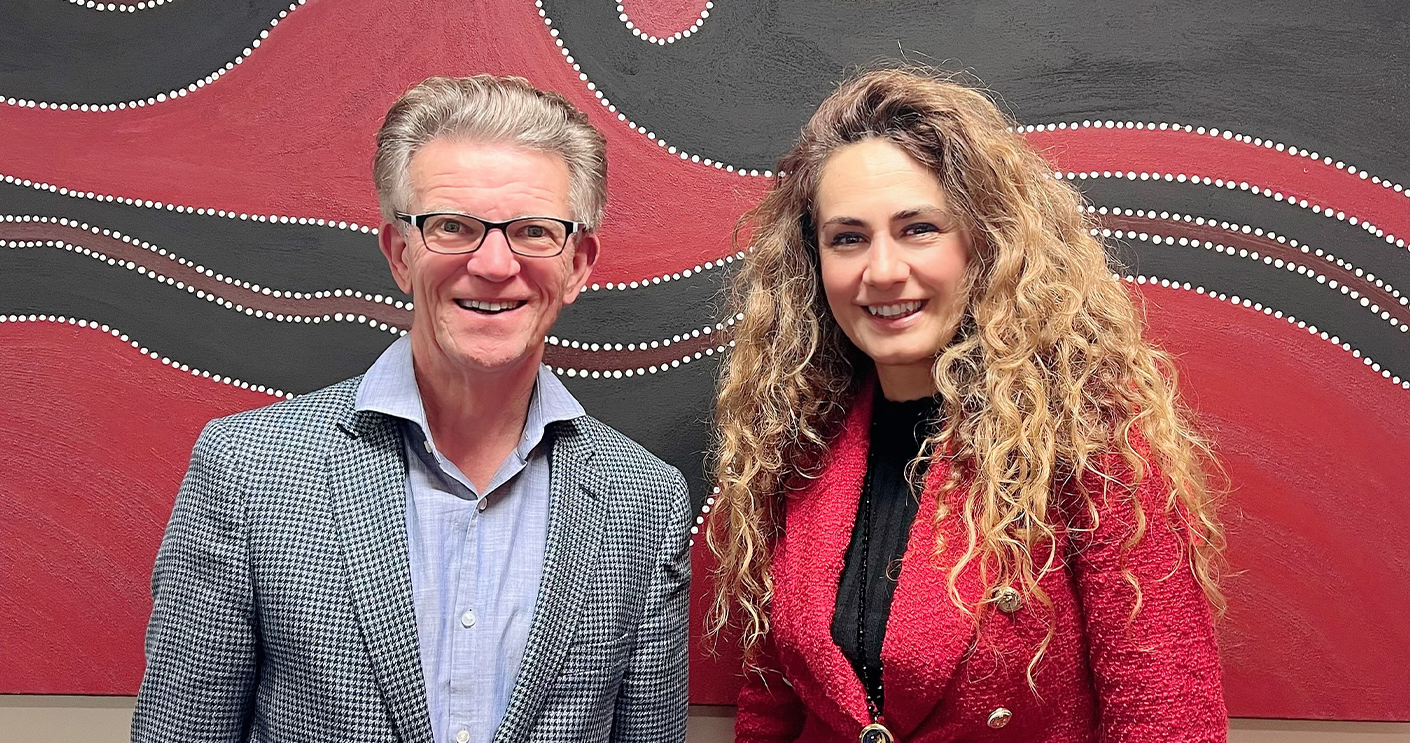
The team of: Professor David Orsmond and Dr Marjan Nazifi, Department of Economics, Macquarie Business School
A simple reminder is sometimes all it takes.
With a 25 per cent failure rate for its 3000 annual students, the first Principles of Economics unit was in need of some fresh thinking.
“The unit is mandatory for all students in the Business School,” explains Dr Marjan Nazifi, who identified enhancing engagement, particularly for students who had to repeat the unit due to past failure grades, as the key to improving the figures. “They are easily identifiable in the data,” she says.
Along with Professor David Orsmond, Dr Nazifi focused on three aspects of engagement: tutorials, assessments and extra meetings and workshops for at-risk students.
Professor Orsmond says the results were remarkable. “The success rate for repeat students increased from around a third to a two-thirds pass rate within a single session.”
The project was extended, with convenors of all other units also emailing repeat students to remind them of upcoming assessments and where they could get assistance.
“This simple action led to a 20-percentage-point increase in their success rate,” says Professor Orsmond.
Dr Nazifi adds: “The evidence is clear that this innovation to improve engagement is effective in enhancing student learning. We believe these strategies can be easily replicated and scaled across other units and courses.”
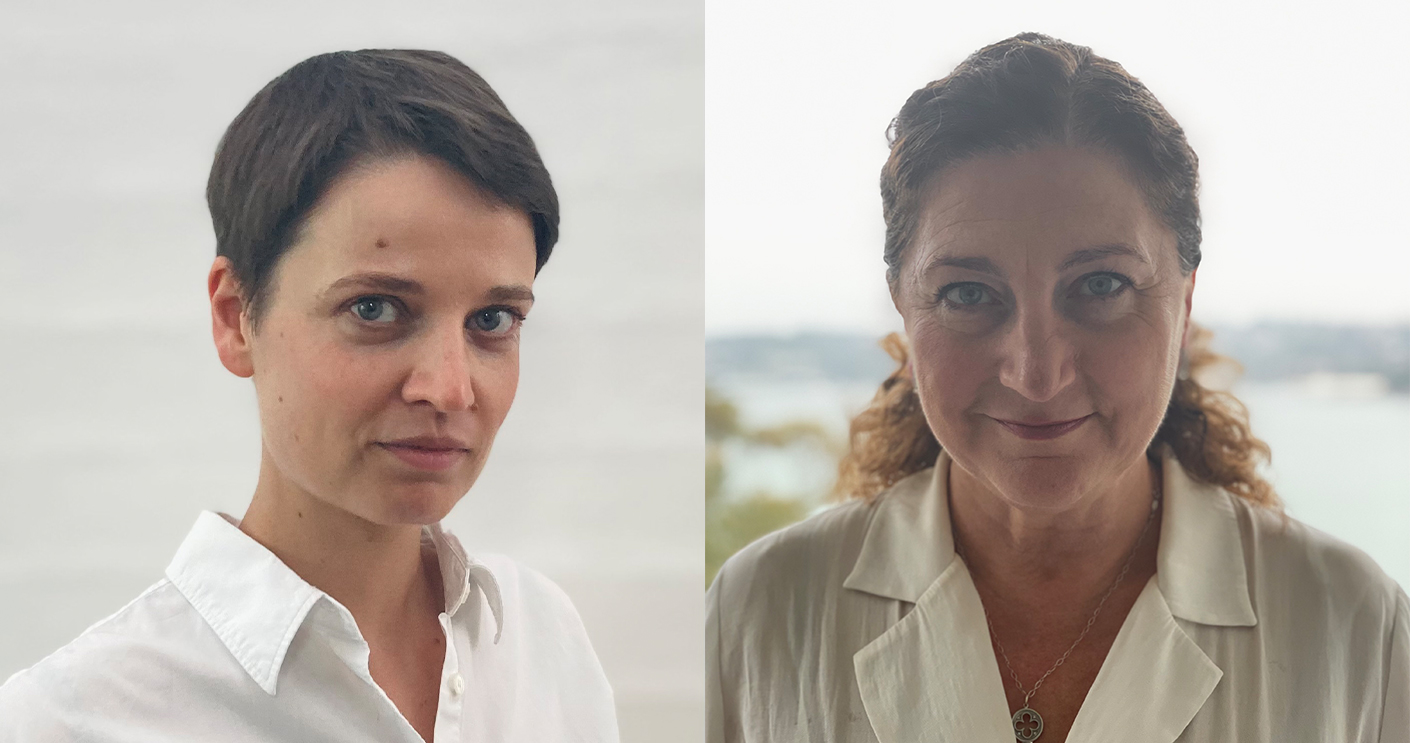
The team of: Dr Mareike Riedel and Dr Amanda Head, Macquarie Law School, Faculty of Arts
Alongside negative preconceptions of statutory interpretation – a crucial skill in the legal profession – law students’ heightened sense of justice and motivation to affect social change often leads them to fast, intuitive resolution, making it challenging to keep students engaged with the meticulous process of legal interpretation.
“We had to find an innovative way to deliver content by slowing down students, engaging their sense of justice in a productive way, and by showing them that statutory interpretation matters in the real world,” says Dr Mareike Riedel.
Dr Riedel and Dr Amanda Head set up a fictitious law firm, Macquarie Legal, where students worked as junior solicitors on case files involving current social justice issues.
The staggered approach to skills development and deliberate late release of assessment instructions were crucial to reinforcing the slow-thinking, methodical approach to statutory interpretation and to inhibiting students’ natural instinct to jump to conclusions.
Data evidenced a transformation in student thinking and learning and high overall engagement, and the team observed a transfer of skills into another law unit.
“Students were not specially directed to apply their new interpretation skills, so this cross-pollination demonstrates an enhancement of learning, engagement and student outcomes more broadly,” says Dr Head.
Excellence in Research Innovation, Partnership and Entrepreneurship Award
The Research Innovation, Partnership and Entrepreneurship award recognises and rewards excellence in research innovation, partnership, commercialisation, translation and entrepreneurship at Macquarie University.
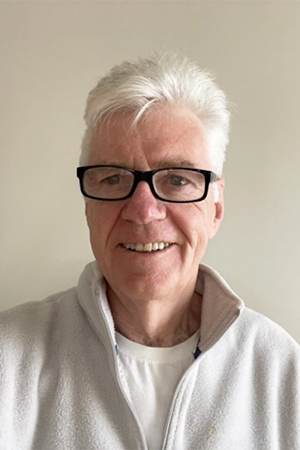 Professor Michael Aitken, Department of Applied Finance, Macquarie Business School
Professor Michael Aitken, Department of Applied Finance, Macquarie Business School
Professor Michael Aitken has spent four decades at the intersection of academia and industry, founding and leading technology businesses and mentoring postgraduate students who work in those businesses.
He co-founded the Capital Markets Cooperative Research Centre, now the Rozetta Institute, and built a $30-million endowment for the creation of national research centres to address market failure in key sectors. He has led research missions to bring increased transparency, fairness and efficiency to the securities, health and energy marketplaces.
Macquarie has been an integral partner in his groundbreaking research and every cooperative research centre (CRC) application. Collectively worth $480 million, it is one of the Australian Government’s largest long-term contributions to research innovation.
Through Professor Aitken’s work, Macquarie is at the cutting edge of this program, leading the recently funded Digital Finance CRC and the prospective Retirement Income and Property Tech CRCs.
“Central to each CRC application is the partnership between Macquarie’s academic supervisors and postgraduate students,” says Professor Aitken.
Students gain first-class PhDs, industry experience that guarantees them a job and, in many cases, valuable equity in the venture they help create.
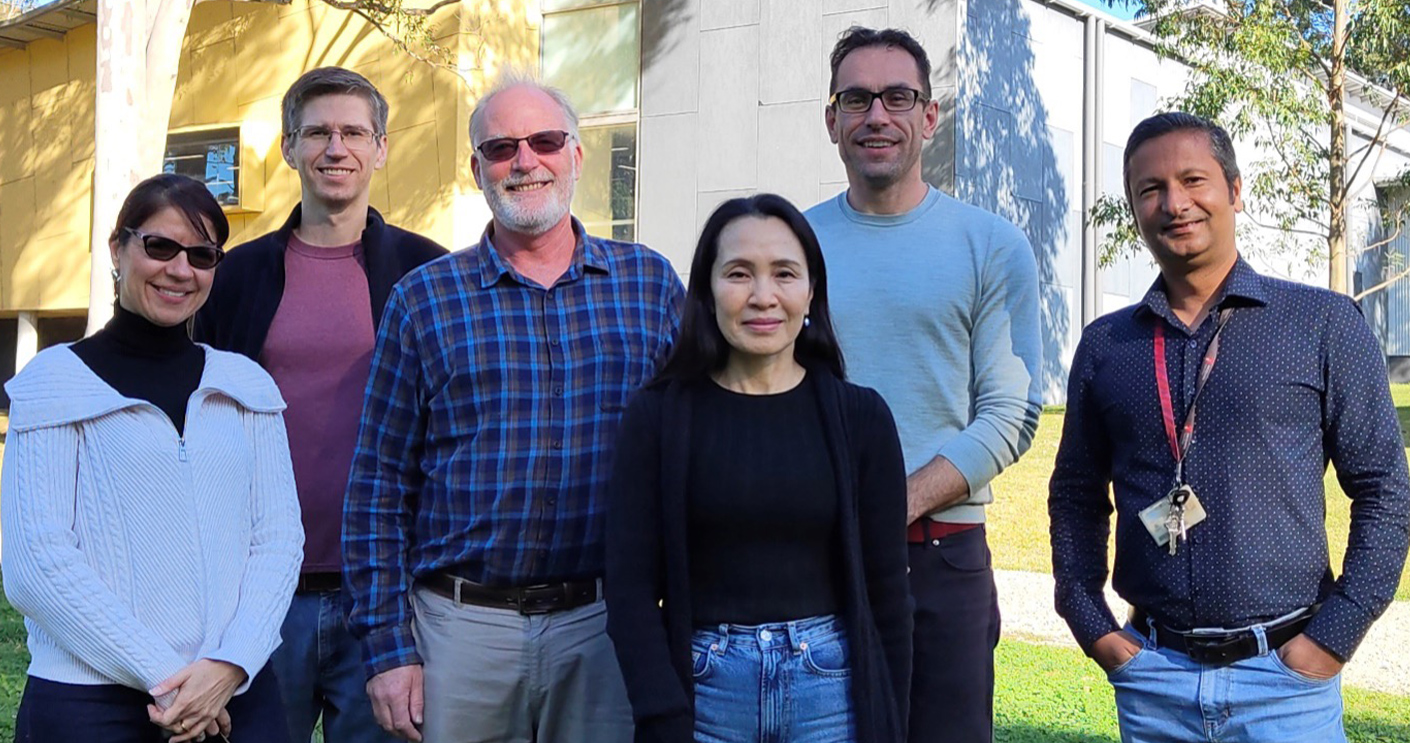
The team of: Distinguished Professor Phil Taylor, Dr Bishwo Mainali, Dr Vivian Mendez, Dr Maciej Maselko, Dr Soo Jean Park, Dr Mary Whitehouse, Dr Piotr Trebicki, Applied BioSciences Insect Biosecurity Team, Faculty of Science and Engineering
Australia’s national goal of a $100 billion per annum agricultural sector by 2030 is threatened by invasive insects that damage production and impede trade.
Defending this goal, Macquarie’s Applied BioSciences has a unique operating model and deep partnerships that produce large, diverse and innovative research programs developing sustainable insect biosecurity solutions, and promoting disruptive technologies that enable significant changes in the way crop protection is managed.
“Our partnerships are of enduring value to Macquarie and each has its own genesis,” says Distinguished Professor Phil Taylor. “All, however, carry a common theme of deep trust and influence through generosity. Our primary approach has been to seek not just commonalities between organisations, but also complementary differences in expertise, facilities and, importantly, operating models.”
Nothing builds partnership like shared people.
“Embedding research fellows and PhD students with CSIRO, NSW Department of Primary Industries and SARDI [South Australian Research and Development Institute] has been particularly effective,” says Professor Taylor.
The team has maintained some of Macquarie’s most substantial externally funded research programs, currently managing more than $35 million in projects that are developing novel strategies for managing insect threats to agriculture, human health and natural environments. Applied BioSciences is also training the next generation of insect biosecurity researchers and managers for Australia.
Excellence in Research – Five Future-shaping Research Priorities
These awards celebrate the five future-shaping research priorities that are identified areas of cross-disciplinary research strengths. Awards within the five future-shaping research priorities demonstrate the real-world impact of University research that has the potential to deliver significant benefits to Australian and international communities.
The five categories are: Healthy People, Resilient Societies, Prosperous Economies, Secure Planet and Innovative Technologies
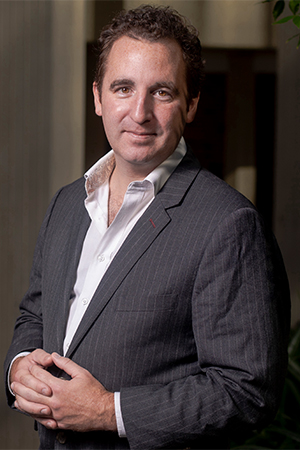 Associate Professor Mark Alfano, Department of Philosophy, Faculty of Arts
Associate Professor Mark Alfano, Department of Philosophy, Faculty of Arts
“It is hard to overemphasise just how important it will be in the coming years to foster wise trust in the Australian and global populations,” says Associate Professor Mark Alfano.
Pandemics, artificial intelligence, climate change: Associate Professor Alfano says the complex issues we face cannot be addressed through purely technological or technocratic approaches.
Most work in philosophy has little to no impact on other fields, according to Associate Professor Alfano. Yet intellectual humility is a critical quality for citizens of a resilient society because it helps us place our trust wisely.
In a collaborative survey of 45,000 people in 69 countries, Associate Professor Alfano’s empirical measure of intellectual humility was the strongest predictor of rejecting COVID-19 conspiracy theories.
“It demonstrated that people who were inclined to jump to conclusions – including about who to trust – and then resist contrary evidence were especially liable to medical misinformation,” he says.
Associate Professor Alfano’s scale is being used by teams in the Americas, Europe and Australasia, and could also influence communications regulatory policy.
In conducting his $1.6–million research project, Associate Professor Alfano founded the philosophical sub-field social virtue epistemology, and pioneered interdisciplinary collaborations with researchers in psychology and computational social science. His findings have been published in more than 25 prestigious publications and attracted significant media attention.
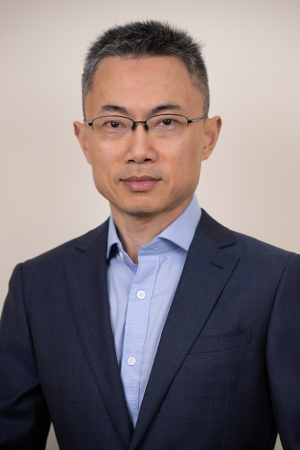 Professor Tao Gu, School of Computing, Faculty of Science and Engineering
Professor Tao Gu, School of Computing, Faculty of Science and Engineering
Be they smart cities, digital health, multimedia or manufacturing, many sectors stand to benefit from the innovative solutions being developed by Professor Tao Gu and his team.
They are pushing the boundaries of the Internet of Things (IoT) – exploring new ways to connect and sense the physical world, while integrating artificial intelligence (AI) into new computing systems and applications.
Their groundbreaking contributions in wireless sensing, low-power networks and edge AI – published in 48 research papers – have the potential to revolutionise the IoT, enabling more reliable data collection from the physical world for improved decision making, efficiency and automation.
In a healthcare breakthrough, Professor Gu’s contact-free millimetre-wave-based blood pressure measurement system offers a convenient and non-intrusive method for monitoring blood pressure.
“The potential benefits include better management of cardiovascular conditions, reduced healthcare costs and improved accessibility to healthcare for individuals worldwide,” says Professor Gu.
His team’s novel millimetre-wave radar-based facial expression recognition has significant implications for multimedia IoT applications. It has the potential to enhance user experiences across entertainment, advertising and human-computer interaction.
Professor Gu’s originality, rigour and achievements position his research as a significant contributor to the advancement of IoT and its applications for the real world.
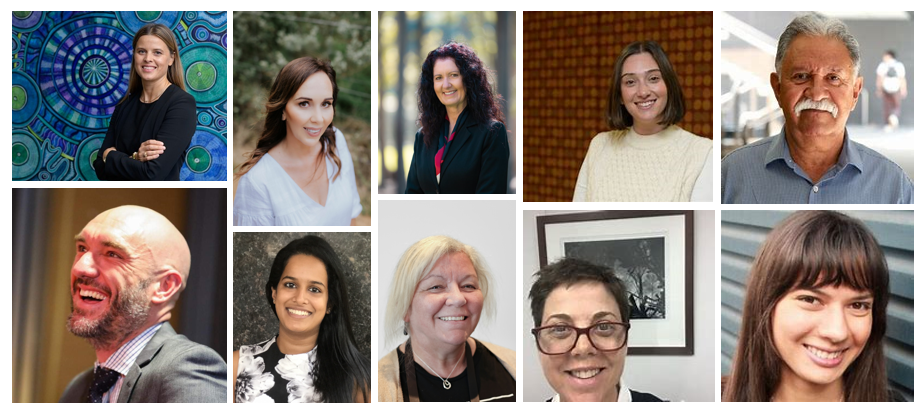
The team of: Professor Catherine McMahon, Department of Linguistics; Professor Leanne Holt, Department of Indigenous Studies; Associate Professor Boe Rambaldini, Dr Kylie Gwynne and Cara Cross, Department of Health Sciences; Noeleen Lumby, Department of Linguistics/Indigenous Studies; Dr Yvonne Dimitropoulos, Luke Halvorsen, Kai Nash and Dr Andrea Salins, Department of Linguistics
Faculty of Medicine, Health and Human Sciences and Faculty of Arts
Three times more prevalent in Aboriginal children than in other children, middle-ear disease disrupts literacy and language development, lowering academic outcomes and increasing rates of incarceration.
Professor Catherine McMahon and her team are reducing this disparity.
Through the Aboriginal Children’s Hearing Health Program (ACHHP), led by Macquarie University Hearing’s HEAR Centre and in partnership with Djurali Centre for Aboriginal and Torres Strait Islander Health Research and Education, they have received $3.85 million to address the issue.
“We genuinely place Aboriginal communities at the heart of the solution by using a co-design approach that delivers sustainable benefits for the community and develops an important evidence base for scale,” says Professor McMahon.
Two years ago, Australia had just two Aboriginal audiometrists. The completion rate for any student commencing the qualification was just 16 per cent. ACHHP’s new culturally safe training program has since graduated 12 Aboriginal audiometrists and is anticipating an 87.5 per cent completion rate. To address industry barriers, which previously led to low numbers graduating, the clinical training model was based on the pedagogical design used to train Macquarie’s Master of Clinical Audiology students.
The team has appointed four Aboriginal research fellows and provided access to resources for development of new models of care.
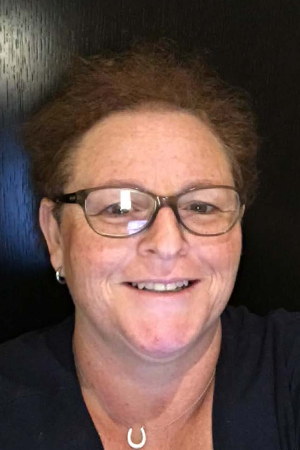 Professor Tina Soliman-Hunter, Macquarie Law School, Faculty of Arts
Professor Tina Soliman-Hunter, Macquarie Law School, Faculty of Arts
Climate change, energy insecurity, ocean pollutants and increasing volumes of difficult-to-recycle products all contribute to an insecure planet.
Using her unique multidisciplinary knowledge of law, earth sciences, technology and geopolitics, Professor Tina Soliman-Hunter has set out to address many of these issues and help build a secure planet for future generations.
“There is no more secure a planet than one where past mistakes are acknowledged, and future threats identified and addressed,” says Professor Soliman-Hunter, who focuses on developing research where scientific evidence underpins law-making.
“As a law academic, I recognise the need for legal reform to address the issues that threaten the security of the planet. However, there is an urgent need for evidence-based regulation of activities that threaten the planet, rather than those activities being based on politics, commercial imperatives, fear or favour.”
Working with scientists from the United Kingdom, Russia and Europe, Professor Soliman-Hunter has led multidisciplinary teams of researchers to address the science that contributes to law-making.
In coming to Macquarie in 2020, she expanded her research to incorporate issues that threaten the security of Australia as well as the planet at large. Professor Soliman-Hunter is also Director of the Centre for Energy and Natural Resources Innovation and Transformation.
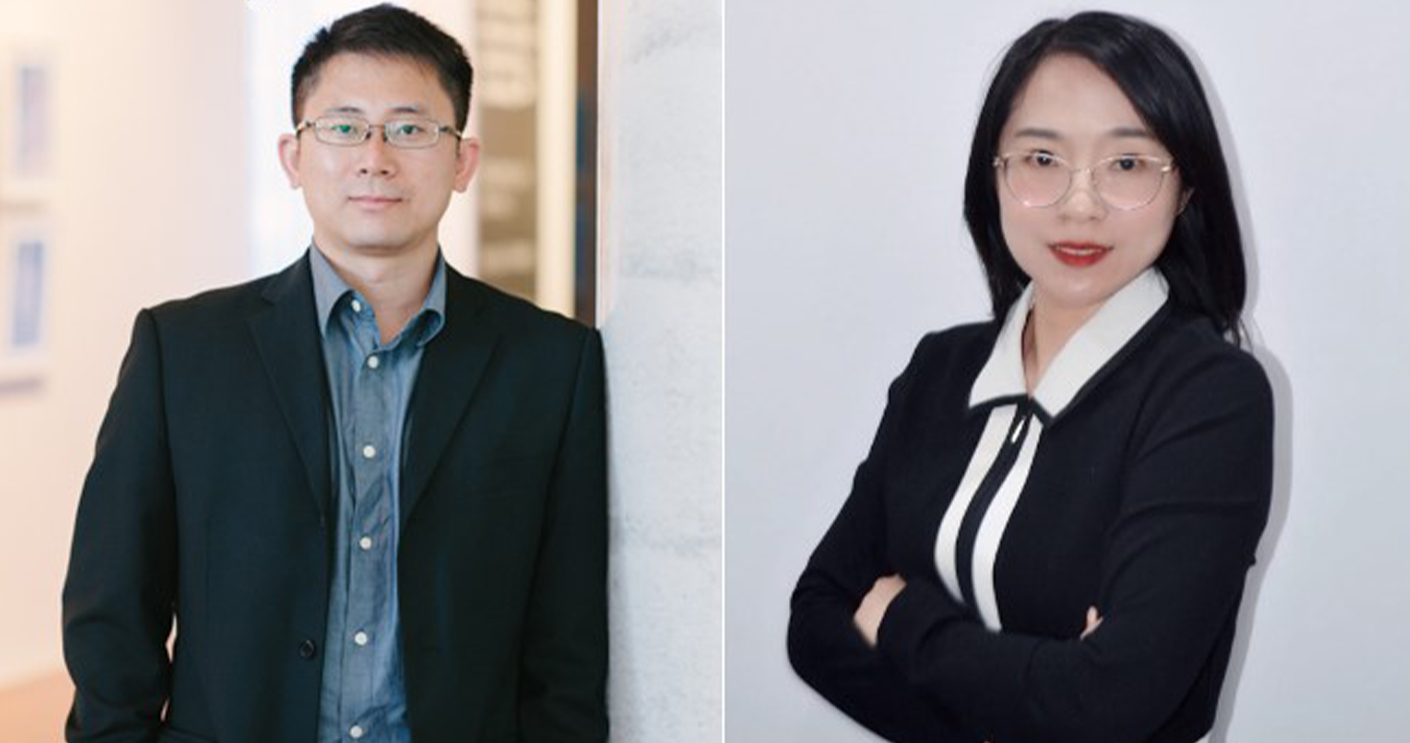
The team of: Dr Miles Yang and Dr Candy Lu, Department of Management, Macquarie Business School
Tens of thousands of employees across northern China are experiencing greater resilience, wellbeing and performance thanks to research conducted by Dr Miles Yang and Dr Candy Lu. The success of their project signals huge potential to shape future business practices for sustainable economic growth – in line with the United Nations Sustainable Development Goals.
By integrating sustainable human resource management practices and artificial intelligence-driven decision making grounded in common-good values, the team aims to revolutionise how business and society interact.
“By embedding common-good values, our study can shape future business practices, contribute to sustainable development and economic growth and drive a paradigm shift in organisational operations,” says Dr Yang.
Since partnering with local government agencies in northern China, the team has promoted its sustainable practices to 200 firms across multiple industries.
“This has benefited a diverse range of employees and managers and underscores the value of such practices in improving workplace productivity, even in environments traditionally resistant to progressive management practices,” says Dr Lu.
“We continue our endeavours with the anticipation that the successful wider implementation of our practices will contribute to global sustainability goals, making a positive and lasting impact on organisations and societies around the world.”
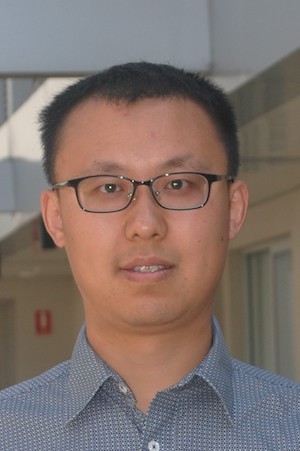 Dr Yipeng Zhou, School of Computing, Faculty of Science and Engineering
Dr Yipeng Zhou, School of Computing, Faculty of Science and Engineering
In an era of privacy- and data-breach uncertainty, Dr Yipeng Zhou is revolutionising federated learning to ease privacy leak concerns.
Artificial intelligence’s proliferation has been empowered by machine learning. However, this relies on users’ private data. More data means more intelligence, says Dr Zhou. But it also means more risk. So much so that the Australian Government heftily increased the penalty for serious or repeated breaches following the Medibank and Optus breaches.
Federated learning – where data owners collaboratively train a shared machine learning model by exposing only their model parameters, not sensitive raw data – can prevent data breaches and bolster data privacy.
Until now, communication inefficiency, system fragility and unreliability had diminished the uptake of federated learning. But Dr Zhou’s novel communication strategies and protocols overcome these deficiencies and promise to be the building blocks for the next generation of distributed machine learning systems.
“My research promotes the application of federated learning, which can broadly benefit intelligent services such as recommendation, computer vision and medical-image analysis by breaking isolated data islands while averting data breaches,” says Dr Zhou, whose research is published in 110 peer-reviewed papers.
“This will strengthen Australia’s unique competitive edge and leading role in the development of IT core technology.”

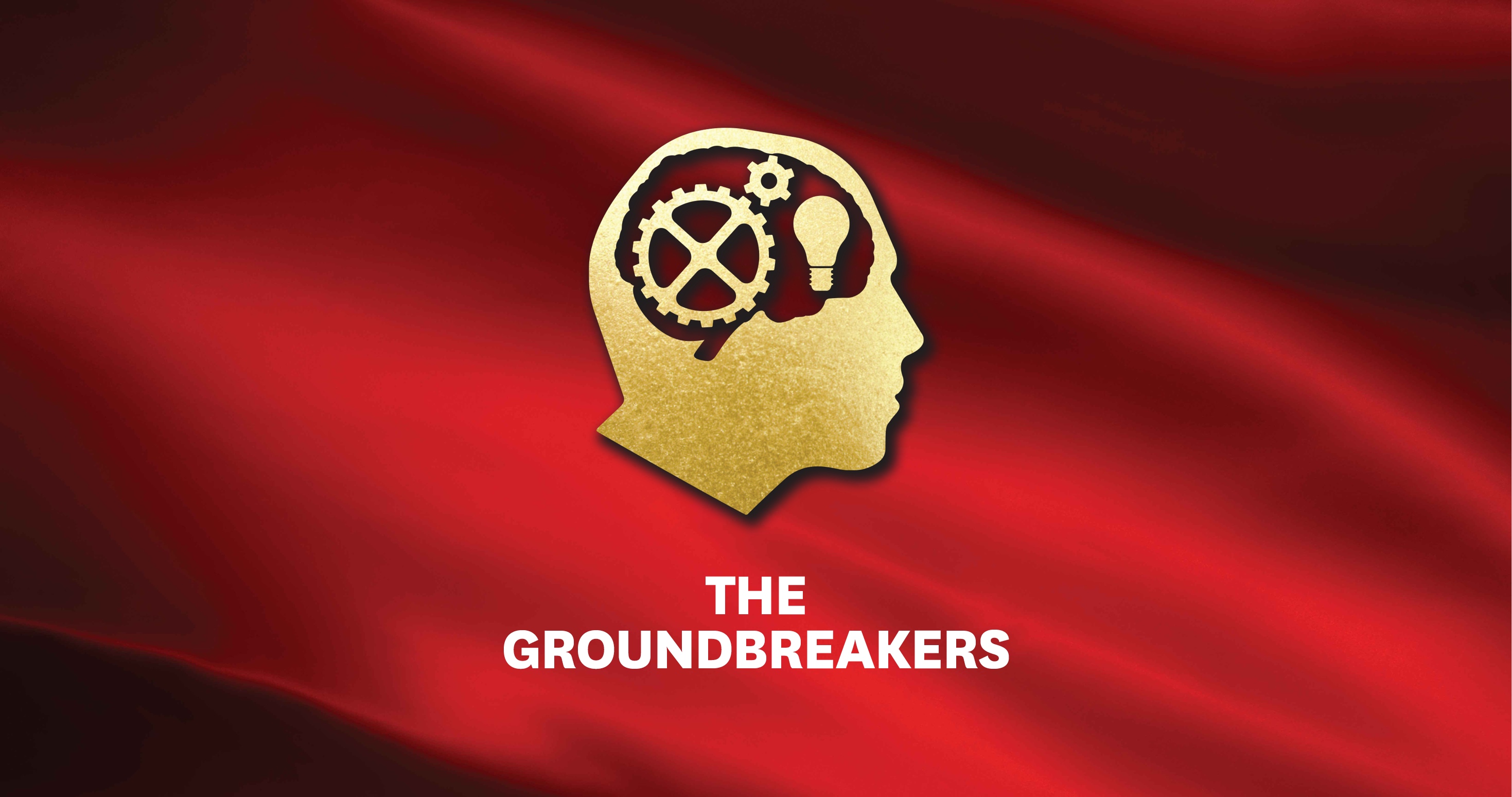
 Back to homepage
Back to homepage